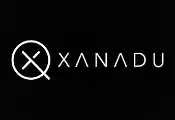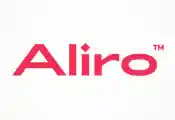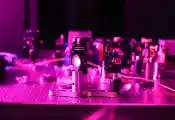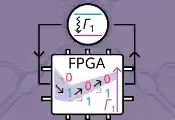Delft Circuits Presents Its I/O Roadmap for Scaling Quantum Computers Towards Thousands of Qubits
Delft, Netherlands, September 17, 2025 -- Delft Circuits, a leading provider in high-density connectivity solutions for quantum computers, today announces its roadmap showcasing how its technology enables the next generation of quantum computing. The company’s innovations address one of the industry’s most pressing challenges: connecting thousands of qubits and operating them reliably.
Quantum computers have traditionally relied on coaxial cabling to connect and control qubits. But coax cannot scale further due to its large physical footprint and poor reliability. Delft Circuits’ Cri/oFlex cables provide the industry’s first scalable I/O solution, combining superconducting materials with filters and integrated attenuators in multichannel flex cables. The result is a breakthrough in channel density, performance, and reliability which comes just as the market’s requirements are surging.
Currently, Cri/oFlex offers eight times higher density at the same price point per channel, with density set to increase to 32 times within 18 months. By solving today’s scaling bottlenecks, Delft Circuits is laying the foundation for quantum computers to connect thousands of qubits and support advanced error correction.
The widespread use of AI is accelerating global demand for computational resources. As quantum computers scale, they are expected to take on more of this workload, unlocking new applications in areas such as seeding deep neural networks, drug discovery, materials science, and finance. Delft Circuits’ roadmap highlights the technical advances required to make this transition possible.
“In our work with the leading quantum computing companies, we are often asked how we intend to connect thousands of qubits as their quantum systems continue to grow. In response, we have created this roadmap which highlights how we are addressing this crucial challenge. We are now initiating further dialogue about our approach and technology with key stakeholders in the market,” said Daan Kuitenbrouwer, Co-Founder at Delft Circuits.
“Quantum investors are closely watching infrastructure innovations that can meaningfully impact both scaling potential and operational economics,” added Guus Frericks, Managing Partner at DeepTechXL. “Solutions that address key infrastructure constraints will accelerate the industry’s journey towards fault tolerance, delivering better performance sooner, and at a lower cost. This is the main driver behind the increased demand and market traction Delft Circuits is currently experiencing.”
Key Technical Advantages of Cri/oFlex cables:
- Higher Channel Density: Delivers 256 channels per loader (ISO-100 style fully assembled cable tree) compared to 168 channels for HD coax at double the cost. Coax delivers only 32 channels at an equivalent price per channel.
- Enhanced Reliability: Simplified design delivers between 5-20x fewer failure points compared to coax and HD coax systems, reducing cost per operation and minimizing downtime.
- Cryogenic Optimization: Flat cable design accelerates faster thermalization with lower heat load.
Highlights from the Roadmap:
- Ground-breaking flex and interconnectivity: Introducing 32 channels per flex and direct flex-to-PCB and chip interfaces.
- Highest density quantum I/O: From 256 channels, density increases 4x every two years, leading to 1,024 channels per loader in 2027 and 4,096 in 2029.
- Maintaining high signal integrity: Maintaining Low crosstalk, noise and thermal load while increasing channel density enables advanced quantum error correction techniques.
The roadmap not only focuses on increasing cabling capability, but also on signal quality and improved interfacing. Further details are available on the company’s roadmap page. To share these developments directly with customers, Delft Circuits has launched a US customer roadshow, engaging with industry leaders on roadmap deliverables and future alignment.




































